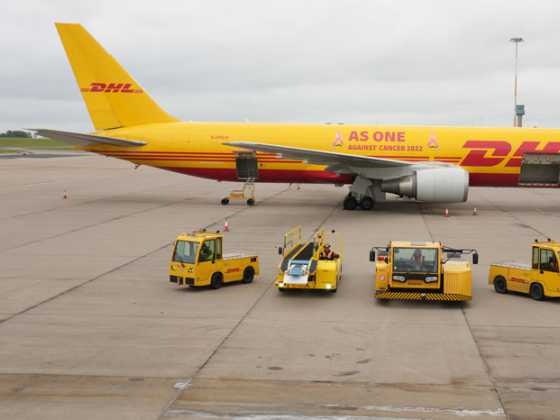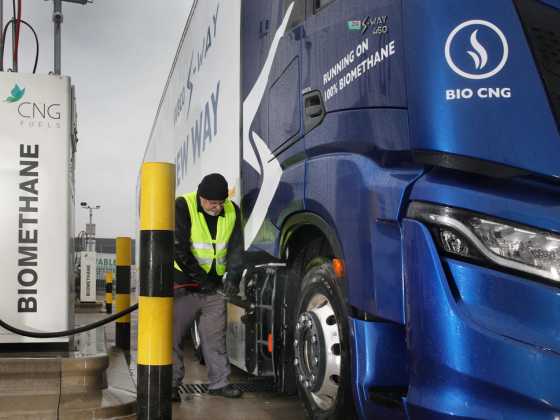Green to the very end
Phil Gibbon, the Environment Agency’s ELV project manager, discusses the legal responsibilities businesses have regarding scrapping vehicles
 An estimated two million vehicles each year reach the end of their life in the UK. These vehicles contain a number of dangerous substances which, if not collected and appropriately treated or disposed of, are highly toxic pollutants. If an End of Life Vehicle (ELV) is dismantled, crushed or shredded before these substances have been removed there is a significant risk of pollution.
An estimated two million vehicles each year reach the end of their life in the UK. These vehicles contain a number of dangerous substances which, if not collected and appropriately treated or disposed of, are highly toxic pollutants. If an End of Life Vehicle (ELV) is dismantled, crushed or shredded before these substances have been removed there is a significant risk of pollution.
The ELV Directive, a piece of European legislation stating how vehicles must be treated at the end of their lives, was introduced to the UK to help regulate the ELV industry. The directive requires ELV treatment sites to meet strict environmental standards. The last owner of a vehicle must be issued with a Certificate of Destruction for their vehicle and, from the beginning of 2007, they must have been able to dispose of their vehicles free of charge. Vehicle manufacturers and importers must cover all or most of the cost of the free take-back system. The directive also sets higher reuse, recycling and recovery targets and limits the use of hazardous substances in both new vehicles and replacement vehicle parts.
The directive applies to all waste motor vehicles (including coaches, buses, motor cycles and goods vehicles). The main objectives of the directive are to remove and treat all hazardous materials and substances contained within an ELV prior to onward shredding, and to reduce the amount of material being sent to landfill.
Illegal activity
Despite the importance of correct disposal of vehicles, illegal car scrap yards are a huge problem for the environment.
The Environment Agency is tasked with ensuring Authorised Treatment Facilities (ATFs) comply with the environmental requirements of the legislation. We estimate that illegal waste business worth around £17 million is still in the hands of rogue traders, representing 350,000 cubic metres of waste. Vehicles and their associated liquids, including fuel and lubricants, end up in illegal sites. Around half of these sites are within 50 metres of environmentally sensitive areas.
Working in collaboration with local authorities, the car recycling industry and trade associations the Environment Agency has been leading the Defra funded Waste Crime Innovation Programme for the past 18 months. The programme aims to reduce waste crime by working with industry, partners and new technologies and techniques. One of the first projects to be delivered is the End of Live Vehicle sector campaign and the development of new guidance and support for ATFs.
The Environment Agency is tackling illegal activity through a combination of penalties, partnerships and awareness-raising among legal businesses. We have been working hard to encourage businesses to act responsibly – which we’re doing by providing them with support and advice. It makes sense to understand the industry and their needs, and then educate businesses accordingly as a first step.
As part of this education programme, the Environment Agency has recently completed a national road show of events for businesses in the ELV sector, and has written to 1,500 site operators with a comprehensive information pack and DVD showing how to de-pollute vehicles.
Enforcement and education
Although the recent ELV project focused on guidance, this education programme was run in parallel to an increased and more focused enforcement effort.
Guidance and advice are essential to support those businesses that want to understand the need to comply. However, where we need to get tough, the Environment Agency will prosecute operators who don’t hold permits or comply with permit conditions. The courts can impose fines, anti-social behaviour orders, community service, curfews and seize assets gained through the proceeds of crime. We have also been gathering intelligence on illegal operators through our Environment Officer networks are encouraging legitimate business to report rogue traders.
This crackdown on illegal ELVs and scrap metal operations has closed or brought into regulation almost half of the 370 known illegal sites in England and Wales in the twelve months until April this year.
A spokesperson for Manchester-based Authorised Treatment Facility (ATF), S. Norton & Co. Ltd, said: “We’ve noticed a big difference in our business since several local illegal operators were closed down. It’s good news for us but also for the environment. The impact on both land and water when vehicles are dumped has now been reduced.”
Driving legislation forwards
In conclusion, the ELV project has shown just how powerful involving industry and key partners has been to increasing compliance. The approach of consulting ATF’s to ascertain exactly where knowledge gaps or issues existed has allowed us to produce more focused guidance. In addition, the trust we have built with the legitimate industry through our work has helped us to encourage them to report rogue traders. Finally, our more focused and intelligence led enforcement approach, helped through our work with partners such as VOSA (The Vehicle and Operator Service Agency) and the Police, has helped the Environment Agency’s high risk approach reap great rewards for business, communities and the environment.
For more information
Call the Environment Agency on 08708 506 506 or visit www.environment-agency.gov.uk/elv






